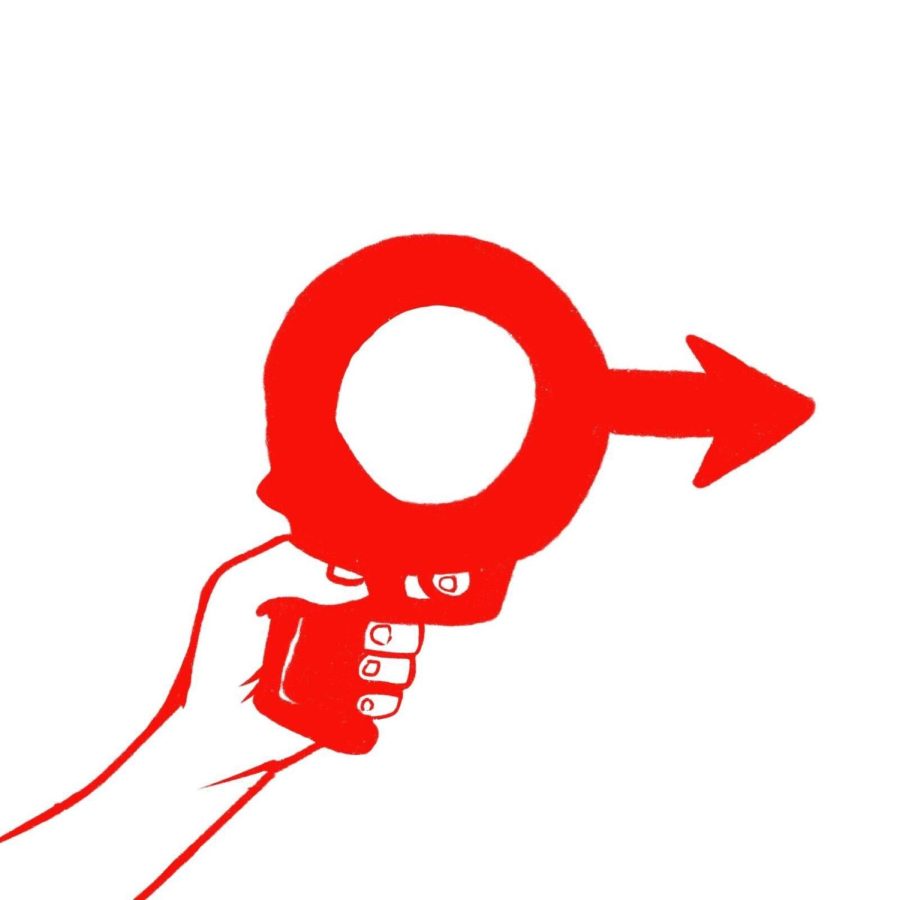Regardless of your feelings on the Second Amendment and gun rights, I think we can all agree that gun violence and mass shootings are – simply put – bad. This is not a new concept, but it does seem to become more and more relevant with each passing year. As of Jan. 31st, there have already been 1,320 deaths from incidents of gun violence in 2023 alone. America is facing an epidemic, and we can’t seem to agree on the root of the problem due to our current polarizing political climate. Liberals blame conservatives, and conservatives blame liberals. So for those of you who don’t want to get wrapped up in the politics of the problem, I’ll instead argue that one of the main causes of these mass shootings has nothing to do with being a Democrat or a Republican. Rather, we need to examine how we are raising young boys in a way that makes them think that violence is the answer.
Toxic masculinity refers to the extreme focus placed on traits such as dominance, control, power, and authority in a man’s life because these are perceived as tell-tale signs that affirm manhood. In addition, any trait that can be interpreted as the feminine is suppressed, such as being sensitive or expressing emotion through crying. So, rather than seeking help from a mental health professional to talk through any personal issues, a man with toxic masculinity might instead try to exert his manliness by opening fire on a crowd of innocent bystanders. This troubling phenomenon should prompt us to reexamine the ideals we preach to young boys as they’re growing up and the types of behaviors we normalize.
This is not to say that every man who exhibits signs of toxic masculinity will become a mass shooter. But, I am arguing that this certain combination of characteristics becomes problematic when mass shooters frequently exhibit a history of misogyny. This is not a coincidence. Straight white men have had their privileges checked more than they’re used to in recent years, although work still needs to be done. Nonetheless, this perceived downward social mobility leaves them feeling as though they need to do something to take back power. Therefore, they may look to violence as an expression of this frustration.
The media is not without blame in this debate. This Bushmaster Firearms advertisement from 2012 (see below) urges men to buy a rifle to reclaim their masculinity as if there exists some unwritten requirement for being a man that states you need to own a deadly weapon. The idea of a “man card” is problematic on its own because that makes it seem as though there is only one universally accepted way to be a man. The gun industry feeding men this type of propaganda surely influences their stance on what it means to be a “true” man and therefore enables the mindset of toxic masculinity.
Another factor is the entertainment industry. We obviously can’t censor artistic expression, but we can still be conscious of the types of messages we are consuming from our favorite celebrities. One of the clearest examples of toxic masculinity promoting the use of guns is the music industry. Rap music is notorious for lyrics filled with references to gun violence, and rap is also a genre that is arguably the most popular among teenage boys. Ice Cube’s 1991 song “Man’s Best Friend” cleverly plays on the expression that a dog is a man’s best friend by instead insinuating that a gun is actually a man’s best friend. He says, “Here is the reason why Ice Cube pack / Just in case the little punks try to jack / I can’t put a motherf***ing pitbull / Under a coat in the small of my back.” To a young man growing up in this time which possibly idolizes Ice Cube, these lyrics can be taken to the extreme of buying into this sentiment, obtaining a gun illegally, and in doing so, inviting the possibility of violence.
Rap music often gets the lion’s share of the blame for perpetuating gun violence, but country music also features many of the same themes. For example, Justin Moore is not shy about his unrelenting affinity for his firearms in his 2011 song titled “Guns.” He sings, “I’m gonna tell you once and listen, son / As long as I’m alive and breathing / You won’t take my guns.” This kind of stubborn, unrelenting attitude towards gun ownership likely fuels the extremist factions of men who refuse to consider any proposed legislation that would introduce reform to stop these mass shootings from happening.
Lastly, the gendered nature of toys and games perpetuates the idea that young boys need to claim and express their masculinity before they can even think otherwise. Seemingly innocent toys like Nerf Guns can, through this perspective, be viewed as a means of conditioning young boys into feeling comfortable with weapons and using them against other people. Similarly, the plethora of violent video games like Call of Duty that are marketed towards teenage boys normalize incessant killing and then reward them for it.
It might be easy to look across the political aisle and point the finger at the opposing party when asked who is to blame for the growing number of mass shootings. But, it might be more efficient and less polarizing to instead correct the troubling patterns of toxic masculinity and misogyny that have repeatedly been found in shooters. To make a serious change, we need to focus on preventing shootings from happening rather than simply reacting to them.

